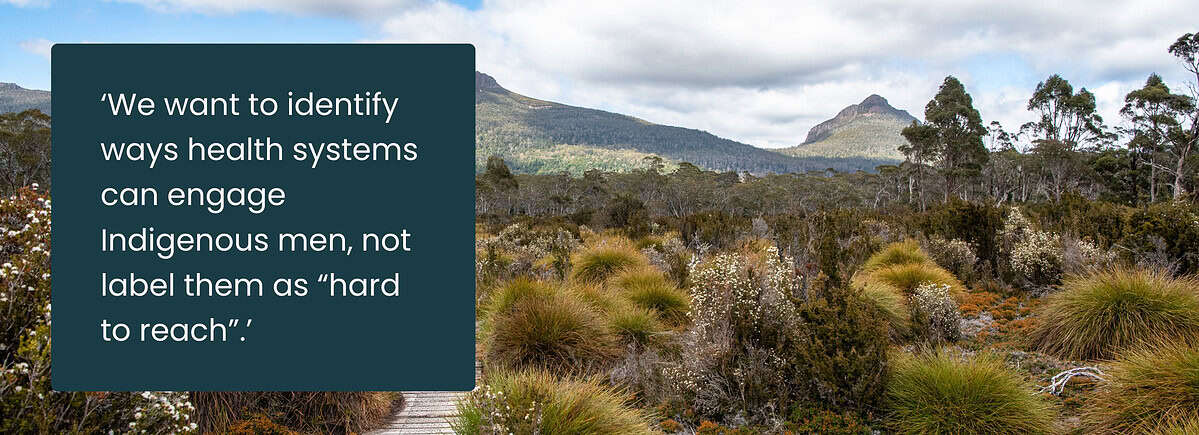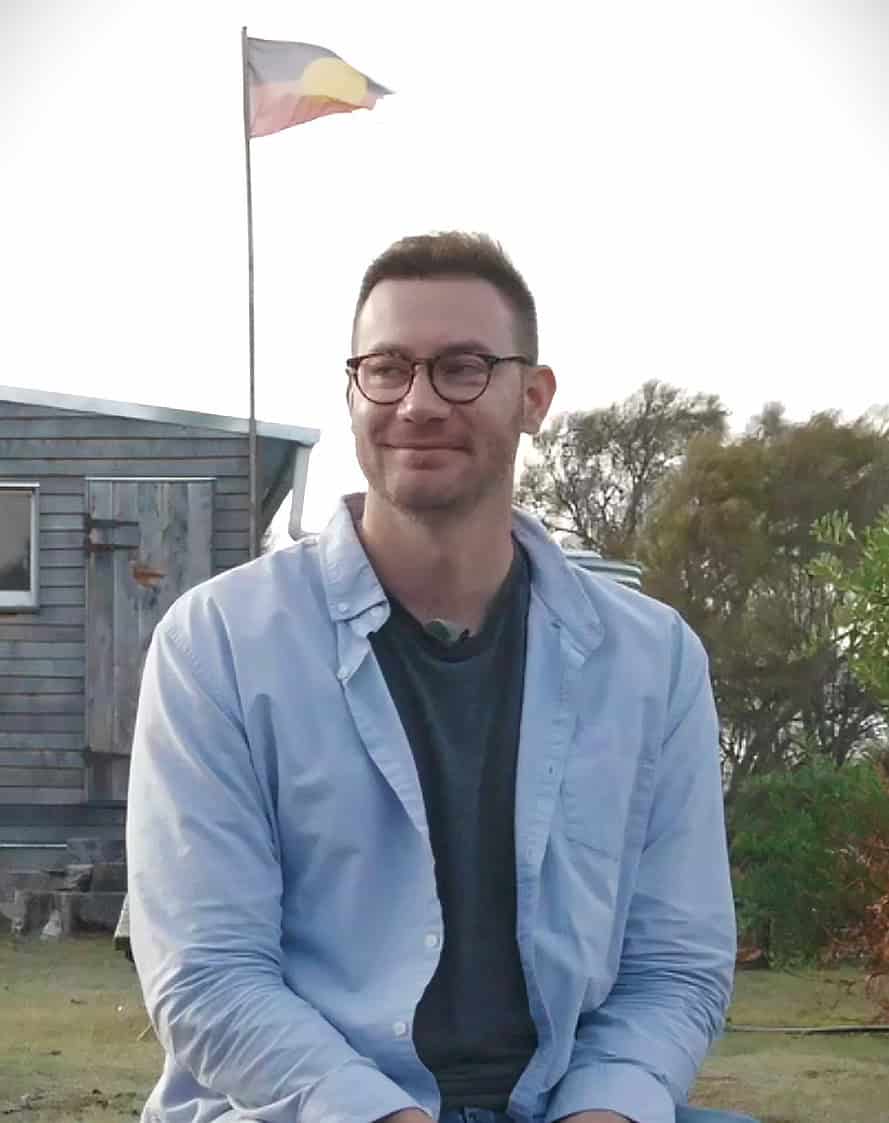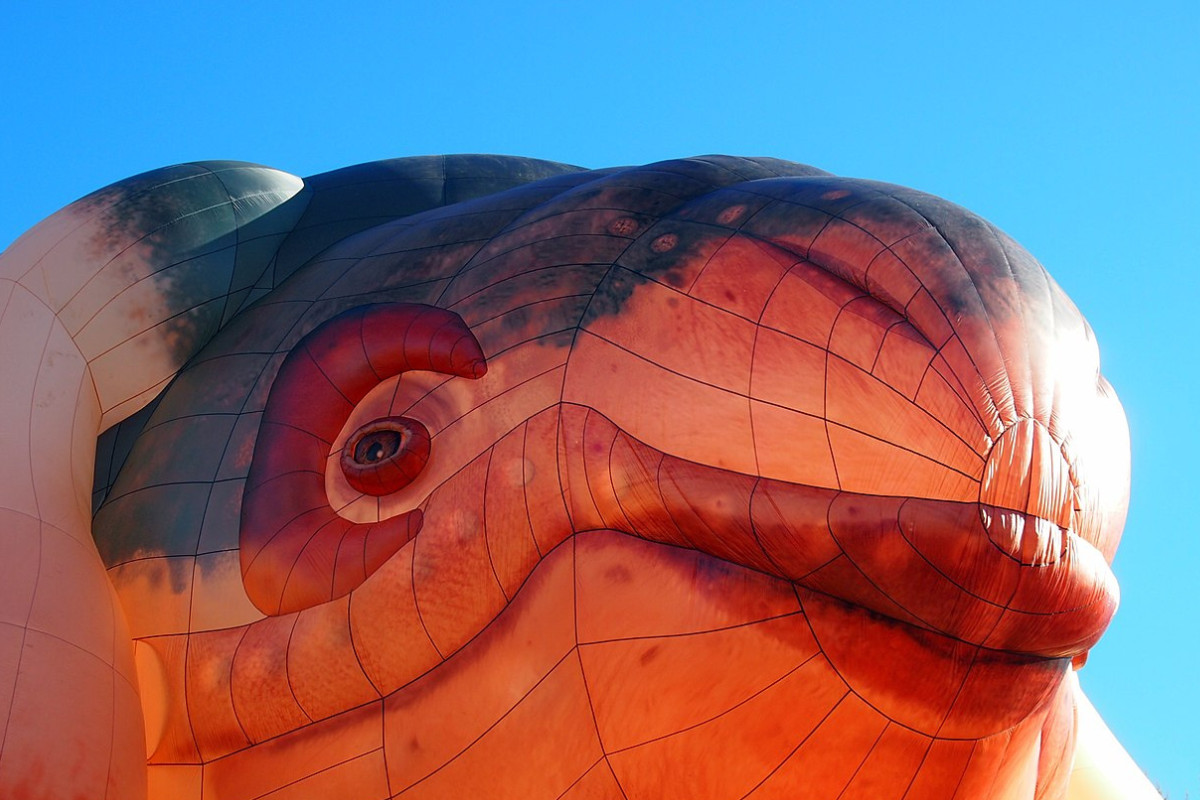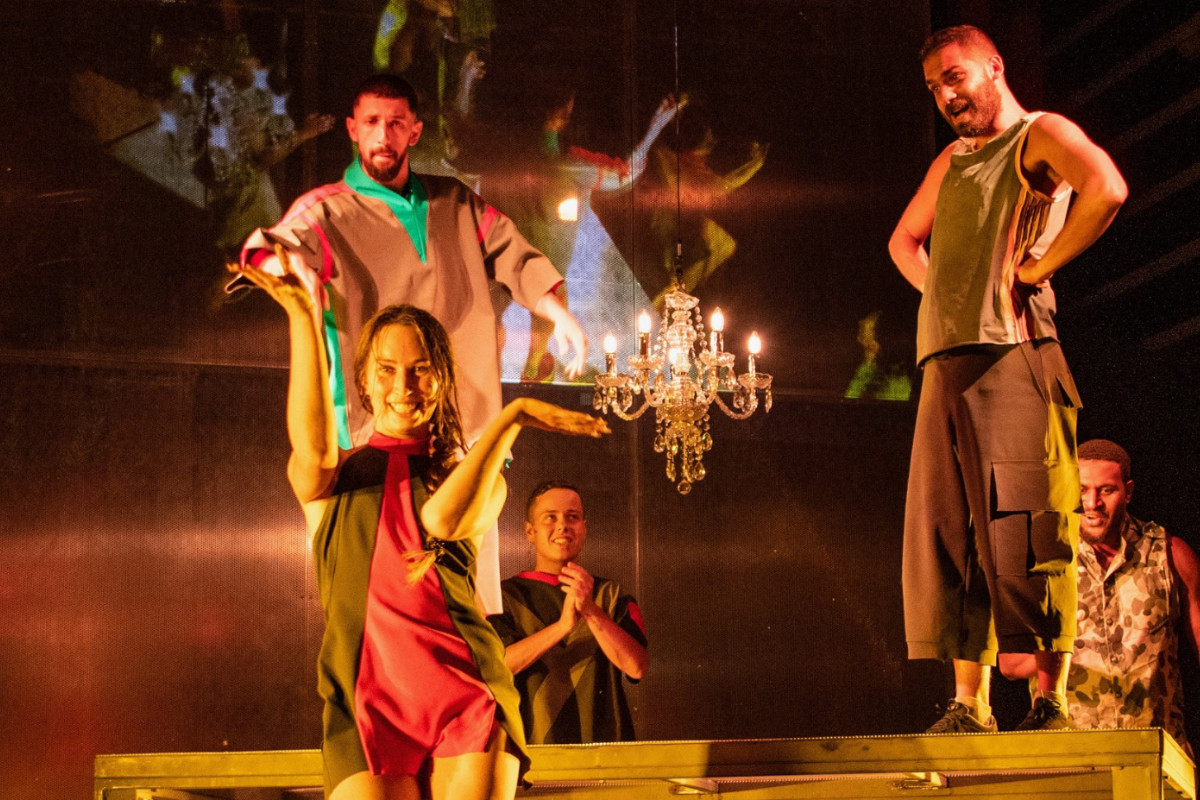
‘Before I was a researcher, I was an Aboriginal Health Worker, which for anyone unfamiliar is a mix between a nurse and a social worker,’ begins Sociologist and Social Work academic Dr Jacob Prehn, a proud Worimi man living on Palawa Country.
He is the recipient of the 2024 John Mulvaney Fellowship, awarded annually to early career researchers and PhD students working in any area of the humanities. The Fellowship provides $4,000 to support the recipient to undertake research or fieldwork in Australia or overseas.
Now Associate Dean Indigenous for the College of Arts, Law and Education at the University of Tasmania, Jacob’s background in Aboriginal health and social work contributes to new research into the systemic barriers of our healthcare system and how data collected about Indigenous people and communities is governed.
Identity & caring on-Country

‘I got into healthcare because I wanted to help people,’ says Jacob. ‘I was an Aboriginal Health worker for a long time, working in a clinical environment, or running a youth group as a social worker.’
‘Pretty quickly, I saw all these complex barriers that were stopping Aboriginal men from accessing healthcare. These barriers weren’t just affecting them; they would also affect their families and communities.’
The Australian Department of Health and Ageing (2013, p. 36) notes that the combined aspects of Indigeneity and masculinity contribute to Indigenous men having ‘the worst health outcomes of any group in Australia.’
‘It can be stressful working at the coalface of Aboriginal health for an extended period. I decided it was time for a change, but I still loved helping people, so I returned to university.’
Jacob obtained a master’s in social work and soon returned to health care.
‘I ran Tasmania’s only Aboriginal men’s health program. We began facilitating a nature-based therapy program for Aboriginal men, which was really popular.’
Observing a need for men in the community to have a place to connect, Jacob worked to co-establish the first Aboriginal Men’s Shed in Tasmania. He also served as the acting-CEO of the National Aboriginal and Torres Strait Islander Health Workers Association.
‘The causes behind poor health outcomes of Indigenous men are multifaceted, but I started noticing how much these on-Country programs contributed to positive health outcomes. That sparked my interest in really understanding what was happening and how we could make it bigger.’
‘Crucial’ research into on-Country care
When a position at the University of Tasmania came up, Jacob said, ‘I thought it would be an interesting space to work.’
‘I worked there three days a week and balanced my time with the men’s group. But then I started thinking about what I wanted to do next.’
‘I was fortunate to work with Distinguished Professor Maggie Walter, and being around her made me interested in research. I was really interested in understanding why these on-Country men’s health trips worked so well so I decided to do my PhD focusing on Aboriginal men’s health and on-Country therapeutic programs.’
Under the Fellowship, Jacob will undertake the first-ever analysis of the Mayi Kuwayu Study (MK Study) of Aboriginal and Torres Strait Islander wellbeing focusing exclusively on how Indigenous men currently seek healthcare and how they’d prefer to access it.
The MK Study dataset holds national significance as the first national survey to adhere to the principles of Indigenous Data Sovereignty and Indigenous Data Governance — which refers to the right of Aboriginal and Torres Strait Islander people to govern the collection, storage and access of data which may affect Indigenous people collectively or individually, drawing on the United Nations Declaration on the Rights of Indigenous Peoples.
‘We want to identify ways health systems can engage Indigenous men, not label them as “hard to reach”. Improving health and wellbeing outcomes among Indigenous men is crucial, not only for their own prosperity, but for their families and communities.’
‘I’ve been deeply involved in Indigenous Data Sovereignty and Governance for quite a few years now, so this project will bring two worlds together. I’m thrilled to have this support via the Fellowship and the Australian Academy of the Humanities.’
The right to govern data
‘We’re seeing considerable changes in how the government and organisations think about Indigenous data, and Indigenous Data Sovereignty,’ says Jacob.
‘I’ve just spent two years co-chairing a project with the Federal government on a governance of Indigenous data framework which will reach across every government department and agency about how they use, access and govern everything they do with Indigenous data. So that’s a big game changer.’
Jacob was also on the steering group for the Academy of Social Sciences in Australia’s Decadal Plan, contributing his expertise in Indigenous Data Sovereignty. He’s an executive member of Maiam nayri Wingara Indigenous Data Sovereignty Collective, who lead scholarship and training to advance Indigenous Data Sovereignty and Indigenous Data Governance in Australia. He is also a Global Indigenous Data Alliance (GIDA) member.
Keep the fire burning
The timing of the announcement of Jacob’s Fellowship, during the 2024 National NAIDOC Week, themed ‘Keep the fire burning: Blak, loud, and proud’ is particularly meaningful given Jacob’s deep appreciation of mentorship, and the value of mentors in his own career.
‘Distinguished Professor Maggie Walter has been a great mentor to me. I credit much of my work to conversations I’ve had with her, and the guidance she’s provided, including the work I’ll commence for the John Mulvaney Fellowship, and my work regarding Indigenous Data Sovereignty.’
‘I’ve learnt so much from the executive members of Maiam nayri Wingara, notably Professor Ray Lovett and Professor Gawaian Bodkin-Andrews. Other great mentors have been Professor Doug Ezzy and Associate Professor Kootsy Canuto.’
When looking to the future, Jacob is quick to answer. ‘There’s so much work to do, and I’m keen to bring Aboriginal and Torres Strait Islander researchers along for the journey, to foster that mentorship that I’ve had, and grow the community of scholarship around Indigenous Data Sovereignty. I’m always keen to hear from people interested in our work at Maiam nayri Wingara and the University of Tasmania.
Opportunities for Indigenous researchers are ‘essential’
News of the Fellowship landed on Jacob’s desk unexpectedly in May.
‘I was sent an email as the Associate Dean Indigenous, and I forwarded it on to my networks to encourage them to apply, and then thought “hang on, this sounds like something I’d like to apply for”, and I had a project in mind that I knew was critical.’
‘Fellowships for Aboriginal and Torres Strait Islander people are essential in supporting their career growth,’ says Jacob. ‘The John Mulvaney Fellowship will support my research right now, but it’ll also support bids for future grants.
Fellowships like the John Mulvaney give researchers the gravitas to say they can lead big projects. I’m really thankful to have this opportunity to share the importance of my work.’
Jacob will be formally presented with the John Mulvaney Fellowship at the 2024 Annual Academy Dinner, in Canberra, in November
More about Jacob
Jacob Prehn (PhD; MSW; BSocSc) is a Worimi Sociologist and Social Work academic raised and living on Palawa Country. He serves as the Associate Dean Indigenous in the College of Arts, Law, and Education at the University of Tasmania. Jacob is an executive member of the Australian Indigenous Data Sovereignty collective Maiam nayri Wingara, and a member of the Global Indigenous Data Alliance (GIDA). As an early career researcher, his scholarship (comprising more than 25 peer-reviewed journal articles and book chapters), focuses on Indigenous Data Sovereignty, Indigenous men and fathers, and Indigenous families growing strong. Jacob has been fortunate enough to receive several awards, including the 2021 Journal of Sociology Best Paper (with colleagues), the 2022 Wiley Most Cited Article, and a 2023 UTas Teaching Innovation Award. Cosmos Science Magazine also named him as one of 52 Aboriginal and Torres Strait Islander people changing the world.



